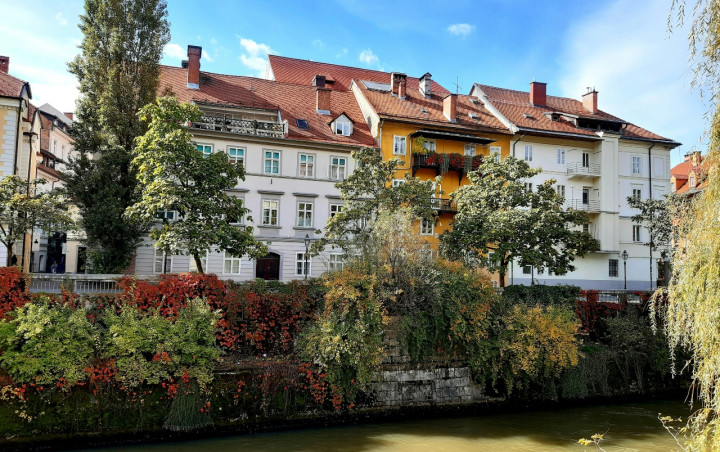Affordable Housing and Construction
Increasing the housing stock and putting available housing on the market.

In the 1990s the Housing act laid the foundation to transition from government-owned housing to private ownership. As a result, 75% of the population today live in their own homes. However, with housing prices increasing by over 86% between 2015 and 2023 (compared to 48% across the EU) owning a home in Slovenia today is becoming all but impossible for large parts of the population. Just as home ownership has scientifically proven positive effects on residential stability, the lack of access to affordable housing contributes to a lack of perspective and emigration incentive.
Volt would like Slovenia to again become a place where its younger generations have the possibility to become homeowners or have access to affordable rental housing and cities like Vienna are showing how.
Volt proposes:
Social housing
Begin building capacities to manage dwellings on behalf of owners on municipal level and introduce compulsory renting of empty dwellings in high-demand zones similar to the UKs empty dwelling management order.
Introduce a preemptive purchase right in case of sales to institutional investors in high-demand zones. While reverting to pre-independence public housing like in Vienna is out of the question, a certain public social housing stock to exert downward pressure on rents is desirable to lower rent levels and should be constructed.
Ensure that large parts of the population qualify for social housing similar to Vienna to ensure organic economic diversity in housing.
Construction
Speed up construction permits and accelerate permission for the conversion of industrial wastelands into construction zones, including a tacit approval for permits not issued after a fixed duration similar to France.
Ensure zoning laws and urbanisation plans incorporate social mixity as a criteria with a minimum of social housing units based on urban density for any new construction project to avoid gentrification and ghettoisation.
Introduce a preemptive purchase right for undeveloped land for municipalities and develop projects as public-private partnerships with municipalities setting reasonable upper limits for construction prices/m² to ensure construction follows actual demand for housing.
Rental market
Follow the Dutch affordable housing act making rental contracts unlimited by default and introduce a home valuation system that takes into account quality criteria to define maximum rents.
Capital markets
Introduce a progressive property tax for individuals and corporations that increases based on the number of owned dwellings, empty for more than 12 months. This would incentivise the real estate owners to use them or place them on the market. The estimates of the proportion of empty dwellings in Slovenia differ, but are usually in the range between 8 and 16 %.
(version 07-2025)